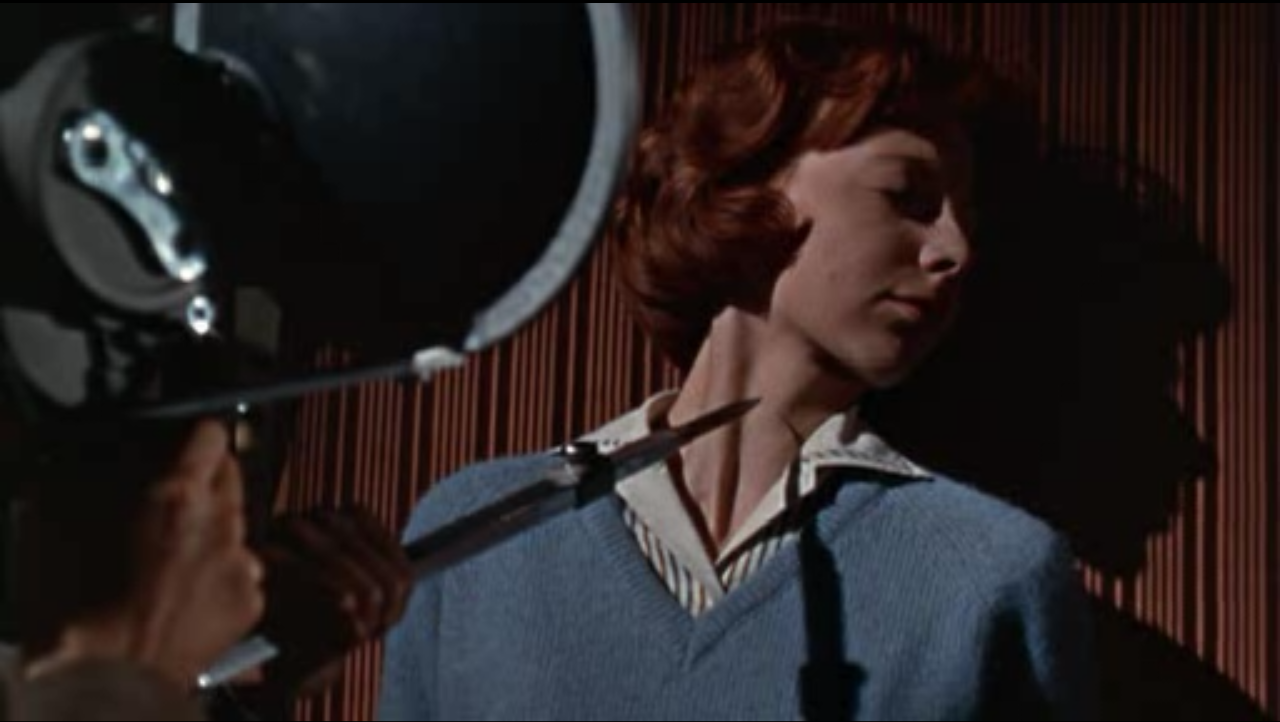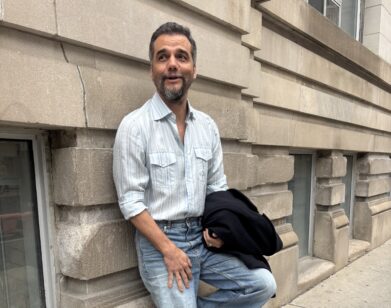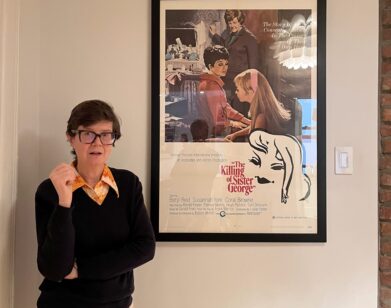Jollywood

Film noir has always been quintessentially Hollywood. You can’t have Chinatown without the water-stealing L.A. robber barons, or Sunset Boulevard without, well, Sunset Boulevard. And yet, just as Hollywood has always been defined, in part, by the foreign directors who’ve worked there (such as noir masters Hitchcock and Wilder), film noir itself has always had an element of foreignness to it.
It’s all the more interesting, then, to watch foreign cinema try to make Hollywood genre pictures. Film Forum’s Brit Noir series wraps up next week with Peeping Tom and Odd Man Out, two of the best and most influential examples of what was an exceptionally productive period in British cinema. Most of the films in the series have been straightforward genre pictures, and while it’s amusing to watch British actors of modest talent play tough while faking American accents, Peeping Tom and Odd Man Out endure in the way that the best Hollywood noirs do, giving us a satisfying dose of existential angst as well as something a bit weightier to brood over.
While Peeping Tom, which plays September 2-3, pushes the boundaries of what could be considered classic noir–it was made rather late (1960) and in saturated, almost pornographic Technicolor–it makes up for this with its unflinching (and for the time, daring) attention to one of film noir’s main themes, sexual perversity and obsession. Director Michael Powell, at the time considered one of Britain’s greatest directors, was all but banned from the industry for making what was, according to reviews at the time, an “unhealthy,” “degenerate,” “sickening,” and “corrupt” film about a man (Karl Boehm as Mark Lewis) who films women as he kills them with a phallic, spear-like appendage extending from his camera.
The film isn’t particularly violent or sexually explicit, but the examination of the erotic and violent
pleasure of the camera–forceful, insistent, yet strangely passive and inert–puts the viewer into an uncomfortable (“unhealthy”?) complicity with the killer. This is film noir at it’s self-referential best; Powell’s cameo as the killer’s equally voyeuristic father, as well as German-born Boehm’s thinly veiled accent (“I’ve made you a berz-day present!”), give a disconcerting, explicitly-staged quality to the film as a whole.
Carol Reed’s 1947 film Odd Man Out, playing in a new 35mm print for 2 weeks starting September 4, is more recognizably noir, yet equally subtle in its execution. The film, starring James Mason as an injured ex-con on the run in Belfast, has all the genre standards: haggard and world-weary protagonist, doomed lover, a robbery, shootouts, chase scenes through dark alleys, sweaty men smoking cigarettes. But instead of detectives, smoky brunettes, bank raids, and LA back alleys, we get IRA operatives, fair-haired maidens, mill hold-ups, foggy dirt roads, and the consumption of heroic amounts of brandy. The film’s ending is classic noir weltschmerz, and Reed’s stylized directing rivals that of the best American noir directors.
Film Forum’s Brit Noir series runs through September 3. Film Forum is located at 209 W Houston Street in New York.






